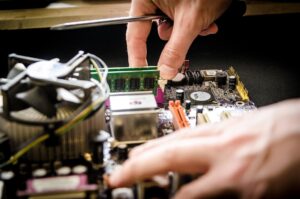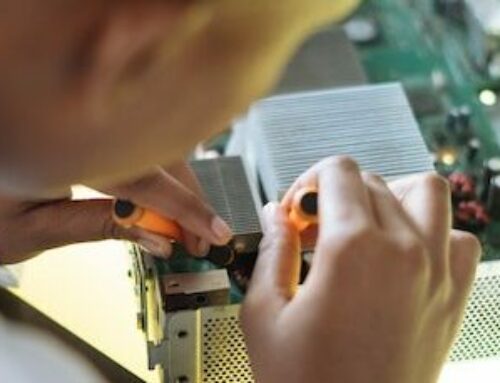A few years ago, a major tractor manufacturer announced they’d require buyers to work only with specific technicians for repairs. However, farmers – many of whom have done their own repairs for generations – pushed back saying, “Once I own the tractor, it should be up to me to decide how it gets repaired.” This sentiment contributes to, “the right to repair.”
In some cases, they’re winning the battle.
There are currently more than 25 states with Right to Repair legislation in the works. It’s a lightning-rod issue with original equipment manufacturers on one side and repair shops and consumers on the other.
What is the Right to Repair?
Under Right to Repair, manufacturers would be required to provide owners, and repair businesses, with access to information. For example, about how to service the product and access to affordable parts. This in return:
- Helps consumers cost-effectively fix what they already own
- Extends the lifecycle of devices
- Reduces electronic waste
We acknowledge that Right to Repair is a polarizing topic, facing a state-by-state battle. That said, we support it and celebrate the recent Executive Order. This order instructs the Federal Trade Commission to ensure manufacturers and distributors aren’t blocking Right to Repair efforts.
We’re not alone.
Advocate groups like repair.org view a competitive repair market as vital to the economy and believe repair shops make products last longer, save owners money and create local jobs.
IT Industry trade organizations like the Institute of Scrap Recycling Industries are defending Right to Repair policies and working with legislators at all levels.
Why Right to Repair Matters
Not everyone owns a tractor, so let’s use cell phones as an example.
By now, most of us have had a cell phone where a component went bad within 12-18 months of owning the device. If the issue was a battery, you were out of luck because most aren’t replaceable. For other problems, you may have been forced into an expensive repair option because of your warranty. In other cases, you might just purchase a new phone because it’s easier.
Some see this as a kind of planned obsolescence – designing and producing goods that are obsolete when something goes wrong or when something newer and better comes along. This is a lucrative strategy if you are a manufacturer.
Obsolescence, regardless of cause, leads to an enormous amount of digital waste.
As leaders in the circular economy and IT asset disposition experts, we believe IT repairs and reuses are crucial to keep equipment out of landfills and reduce our collective environmental impact. In our business, reuse is the highest and preferred form of recycling.

How Right to Repair Affects Our Customers
Many of our customers rely on selling us their used computer equipment or purchasing refurbished equipment from us to meet their business needs. Therefore, beyond the environmental implications, the Right to Repair affects our customers in another very real way.
While today the hot topics are cell phones and tractors, that could change. Next year it could be PCs, laptops, servers and more. If that happens, our customers would no longer be able to:
- Recoup some value from their used IT equipment
- Reduce their IT expenses by purchasing refurbished assets
While supporting the Right to Repair, we’re defending the value of our customers’ equipment, our ability to repair it, and a third-party’s right to purchase it refurbished.
Right to Repair Issues We’re Watching Closely
To be fair, there are some legitimate concerns related to the Right to Repair. For example, some cell phones use lithium-ion batteries, which need to be handled with extreme care. When not handled properly, these batteries can cause harm both at the time of repair and down the road.
Another concern relates to data security issues. Specifically, if certain components aren’t handled in accordance with data privacy guidelines. This could lead to data security issues – especially on networks.
For these reasons, we believe it’s critical that the Right to Repair legislation includes specific considerations related to safety and data in addition to any environmental provisions.
In addition, we believe Right to Repair needs to go hand-in-hand with pressure on manufacturers to design their products with repairability and recycling in mind. It’s part of their responsibility as global citizens to look past their short-term P&L to do the right thing for the long term.
Looking to sell or buy refurbished IT equipment? At Summit 360, we’ve invested in expert repair capabilities and our technicians are trained to maximize the reuse of a broad range of IT equipment. Contact us today!






